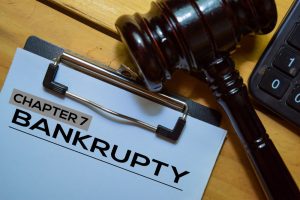
When Should You File Chapter 7 Bankruptcy? Signs It Might Be the Right Time
Key Signs That Show When to File Bankruptcy Chapter 7 Knowing when to file bankruptcy Chapter 7 can make the
Error: Contact form not found.
Lorem ipsum dolor sit amet, consectetur adipiscing elit. Ut elit tellus, luctus nec ullamcorper mattis, pulvinar dapibus leo.
Knowing when to file bankruptcy Chapter 7 can make the difference between temporary hardship and lasting relief. Chapter 7 is a legal process that may allow certain debts to be discharged and can provide financial relief, depending on individual circumstances. But timing is key.
Chapter 7 bankruptcy is designed to help individuals eliminate unsecured debts like credit cards, personal loans, and medical bills. It’s often considered when you have more debt than income and no realistic way to repay what you owe.
To qualify for Chapter 7, you must:
You can keep essential assets like a modest car or home if they fall under bankruptcy exemptions. If your income is too high or your assets are not protected, Chapter 13 may be a better fit.
If you’re unsure when to file bankruptcy Chapter 7, look for these clear red flags:
If these signs apply to your situation, you may wish to explore whether Chapter 7 is an appropriate option. Acting early helps you preserve what little you have left before it’s lost to fees, interest, or garnishment.
Deciding when to file bankruptcy Chapter 7 also depends on your financial calendar and recent activity.
Also, filing too soon after a previous bankruptcy may affect your eligibility. You must wait 8 years between Chapter 7 filings.
Filing too late often means you’ve drained your savings, sold assets, or harmed your credit further. Filing too early may mean losing property you could have kept or not qualifying based on income.
The ideal time to file is:
If you’re wondering when to file bankruptcy Chapter 7, you’re not alone.The timing of a filing can affect how debts and assets are addressed under bankruptcy law. At Bankruptcy Attorneys, we offer free evaluations to help you assess your debt, assets, and income.
Start today by connecting with a local attorney who understands your state’s rules and can help you plan an appropriate time to file based on your financial situation
Up to 10 years, but you can begin rebuilding credit immediately after discharge.
Yes, as long as your income falls below your state’s median or you pass the means test.
Yes—expenses like medical bills must be incurred before filing to be discharged.
Yes. The automatic stay halts lawsuits, garnishments, and most collection efforts.
There’s no set deadline, but acting while your income is lower may help with eligibility.
Attorney Advertising. This site is a legal marketing service and does not provide legal advice. Submitting information does not create an attorney-client relationship. Results are not guaranteed.

Key Signs That Show When to File Bankruptcy Chapter 7 Knowing when to file bankruptcy Chapter 7 can make the
| Cookie | Duration | Description |
|---|---|---|
| cookielawinfo-checkbox-analytics | 11 months | This cookie is set by GDPR Cookie Consent plugin. The cookie is used to store the user consent for the cookies in the category "Analytics". |
| cookielawinfo-checkbox-functional | 11 months | The cookie is set by GDPR cookie consent to record the user consent for the cookies in the category "Functional". |
| cookielawinfo-checkbox-necessary | 11 months | This cookie is set by GDPR Cookie Consent plugin. The cookies is used to store the user consent for the cookies in the category "Necessary". |
| cookielawinfo-checkbox-others | 11 months | This cookie is set by GDPR Cookie Consent plugin. The cookie is used to store the user consent for the cookies in the category "Other. |
| cookielawinfo-checkbox-performance | 11 months | This cookie is set by GDPR Cookie Consent plugin. The cookie is used to store the user consent for the cookies in the category "Performance". |
| viewed_cookie_policy | 11 months | The cookie is set by the GDPR Cookie Consent plugin and is used to store whether or not user has consented to the use of cookies. It does not store any personal data. |